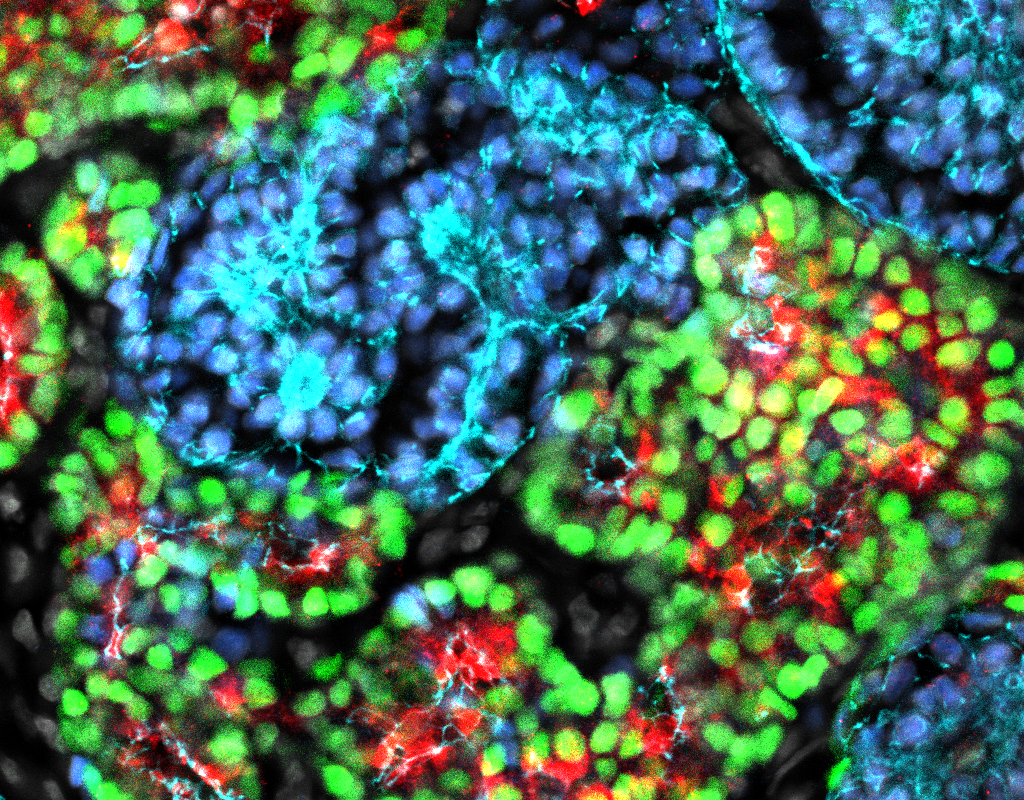
To democratize access to lab-grown organ-like structures known as organoids and other advanced stem cell and transcriptomic technologies, USC will launch the CIRM ASCEND Center, dedicated to “Advancing Stem Cell Education and Novel Discoveries.” Funded by a $3.95 million grant from the California Institute for Regenerative Medicine (CIRM), the voter-created state agency charged with distributing public funding to support stem cell research and education, ASCEND joins a network of shared resources laboratories located at USC, UCLA, the University of California, Irvine, City of Hope, and Gladstone Institutes that are focused on developing and using stem cell-based models to study human cells, physiology, and disease.
Led by a trio of USC Stem Cell faculty members, directors Nils Lindström and Giorgia Quadrato and co-director Francesca Mariani, USC’s CIRM ASCEND Center will offer organoids and other stem cell-based models, analyses, consultations, and in-depth education and training. ASCEND will be housed within the Eli and Edythe Broad CIRM Center for Regenerative Medicine and Stem Cell Research at the Keck School of Medicine of USC.
“USC’s CIRM ASCEND Center is meant to democratize access to stem cell technologies and organoid models to the California population,” said Lindström, assistant professor of stem cell biology and regenerative medicine. “The whole idea actually was initially born out of a conversation we had about: how can we overcome the difficulties of making stem cell and organoid models reproducible, and how can we make them reflect a broader population? It is imperative that we make these tools accessible to the enormously productive California research community to drive innovation and solve urgent clinical problems.”
In summer 2024, ASCEND will launch with a focus on kidney and brain organoids, areas of expertise for Lindström and Quadrato. It will then draw on the skills of other faculty members in USC’s Department of Stem Cell Biology and Regenerative Medicine to expand into cartilage, intestinal and heart organoids. These organoids will be derived from stem cells that reflect the gender, racial and genetic diversity of the people of California, and will be characterized in collaboration with UCLA’s shared resources laboratory, led by Kathrin Plath.
In addition, ASCEND will offer specialized services known as single cell analysis and spatial transcriptomics. These services will include sequencing genetic materials including DNA and RNA, and measuring gene activity and where it occurs within cells, tissues, and organoids.
ASCEND will also provide online and hands-on training and education for scientists at all stages of their careers, including high school students, undergraduates, graduate students, postdoctoral trainees, faculty, physicians, and researchers from academia as well as from the biotech and pharmaceutical industries.
“The call from CIRM is not just to teach the expert in how to do these things, but also to provide educational experience for those that are at the very entry level as well,” said Mariani, who is an associate professor of stem cell biology and regenerative medicine, and integrative anatomical sciences, the director of the stem cell master’s program, and the co-director of the CIRM COMPASS stem cell undergraduate program.
“Our goal is to facilitate a significant change in personalized medicine by promoting collaboration, technology transfer, and the growth of a competent workforce,” said Quadrato, assistant professor of stem cell biology and regenerative medicine. “Our aim is to provide scientists and students in California with access to specialized organoid models, along with advanced single-cell and spatial transcriptional services. We anticipate that this will enable them to push biomedical innovation forward and make progress in disease modeling.”
Juliane Glaeser, director of translational and collaborative research programs for USC Stem Cell, added: “We are very grateful to CIRM for their support. The network of shared resources laboratories is critical to speed up the progress we make in the regenerative medicine field.”
The shared resources laboratories will foster collaboration among California researchers as part of CIRM’s Infrastructure Program, which addresses challenges that hinder progress in the regenerative medicine field.
“By investing in SRLs, we are not only providing essential infrastructure for stem cell research but also positioning California at the forefront of this transformative research,” said Rosa Canet-Aviles, vice president of scientific programs and education at CIRM. “These new SRL awards showcase the remarkable progress in stem cell research and highlight CIRM’s pivotal role in propelling stem cell research forward. Through these awards, CIRM will continue to drive progress, now focusing on cutting-edge disease modeling using human stem cells.”
Andy McMahon, the director of USC’s stem cell research center, added: “Undoubtedly, this initiative will make significant contributions to education and foster collaboration in the field of human model systems. It will also play a pivotal role in advancing our comprehension of kidney and brain development and their associated disorders. In improving our ability to model human organ functions and human disease in a dish, these systems will enhance our ability to develop innovative therapeutic interventions.”
